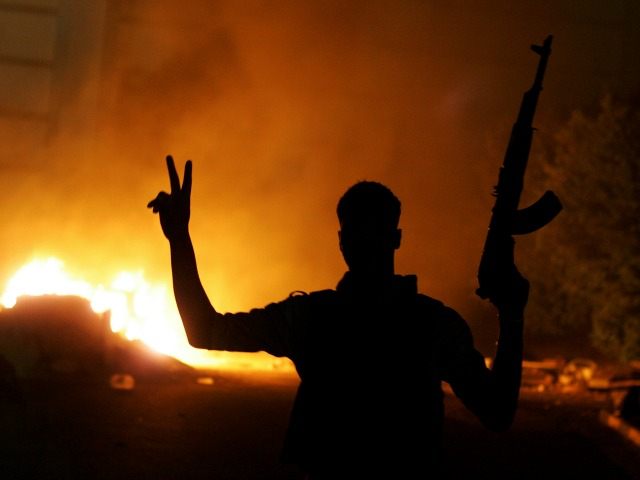TEL AVIV – A State Department email released earlier this week contains a tidbit that spotlights the highly unusual nature of the U.S. special mission attacked in Benghazi on September 11, 2012, Breitbart Jerusalem has found.
In the email in question, released as a result of a Judicial Watch Freedom of Information (FOIA) lawsuit, Hillary Clinton’s deputy, Jake Sullivan, was editing controversial talking points to be used by Obama administration officials while publicly discussing the Benghazi attacks.
Sullivan corrected draft phraseology that incorrectly referred to the facility as a U.S. Consulate.
Wrote Sullivan:
This looks good. Two small edits
1. We call it “the U.S. mission” or the “US diplomatic post” because it is not actually a Consulate
2. There is a missing “of” in the third tic.
The distinction between a consulate and a U.S. Mission, or U.S. Special Mission, as it is usually officially labelled, is critical.
The U.S. Benghazi facility was not a consulate, which typically refers to the building that officially houses a consul, or the representative of one foreign government to the host nation. Indeed, in August 2012, the U.S. Embassy in Tripoli held a ceremony reopening the consular section in that city and not in Benghazi.
Besides representing the host nation’s interests to a foreign country, a consulate also provides services to U.S. citizens living abroad.
The State Department explains the role of a consulate:
Lose your passport, break a law, or have a birth or death in the family while abroad? Go to a consulate.
Need a lawyer or a doctor while overseas? Ask the consulate for a list.
If you are unlucky enough to be the victim of a crime in a foreign country, find the nearest consulate.
One of the primary jobs of American consulates is helping and protecting Americans abroad.
The U.S. compound in Benghazi was none of those things. Instead, as the State Department-sponsored Accountability Review Board (ARB) documented, the facility was a “U.S. Special Mission” compound.
The mission was so special, the ARB itself related, that it possessed a “non-status” as a “temporary, residential facility” which “made allocation of resources for security and personnel more difficult, and left responsibility to meet security standards to the working-level in the field, with very limited resources.”
The host nation, Libya, was not even officially informed of the U.S. Special Mission’s existence when it was first established, as the ARB documents:
Another key driver behind the weak security platform in Benghazi was the decision to treat Benghazi as a temporary, residential facility, not officially notified to the host government, even though it was also a full-time office facility.
The special mission designation also bypassed State Department security standards for official consulates and embassies.
“This resulted in the Special Mission compound being excepted from office facility standards and accountability under the Secure Embassy Construction and Counterterrorism Act of 1999 (SECCA) and the Overseas Security Policy Board (OSPB),” added the ARB.
The State Department’s Libya desk officer, Brian Papanu, testified to the House Oversight and Government Reform Committee that the U.S. Benghazi mission was unique in almost every aspect as far the compound’s security set up.
“Well, Benghazi was definitely unique in almost every – I can’t think of a mission similar to this ever, and definitely in recent history,” Papanu told the committee.
Lee Lohman, the executive director of the Near Eastern Affairs Bureau, further testified to the Committee:
[R]emember that Benghazi, I’m not sure that we – I’m trying to think back. I mean, we’ve evacuated from any number of places, but I’m not sure we’ve ever gone into something in such an expeditionary way as this by ourselves without having military along with us.
The Committee itself found the facility designation to be “an expedient way to maintain a diplomatic presence in a dangerous place.”
“The State Department was operating a temporary residential facility in a violent and unstable environment without adequate U.S. and host nation security support.”
Aaron Klein is Breitbart’s Jerusalem bureau chief and senior investigative reporter. He is a New York Times bestselling author and hosts the popular weekend talk radio program, “Aaron Klein Investigative Radio.” Follow him on Twitter @AaronKleinShow. Follow him on Facebook.

COMMENTS
Please let us know if you're having issues with commenting.